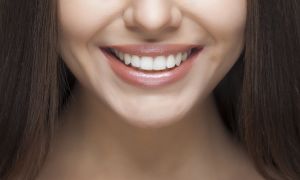Advertisement
Resins have become very important in dentistry over the last thirty years. Hard tooth-colored resins that blend in with teeth are now used for fillings. Resins are also used to repair and restore parts of teeth that are missing or damaged, like chips and spaces. Durable resins are also used as glues and cements to bond veneers and crowns to teeth.
Resin may be thought of as a tool in cosmetic dentistry. A mixture of glass (or quartz) and resin results in a tooth-colored substance that blends in well with natural teeth. This is a good option for you if you need cavities filled and don't want to see a metallic-colored amalgam filling every time you open your mouth.
Another way in which resins may be used in cosmetic dentistry is to make veneers, which are very thin layers of material -- in this case composite resin -- that are placed on the front of teeth to cover yellow or discolored teeth, to fill in little gaps or chips, or to brighten the teeth. As with the resin fillings, composite resin veneers can be a good choice because they are durable and look natural.
Another way in which resins may be used in cosmetic dentistry is to make veneers, which are very thin layers of material -- in this case composite resin -- that are placed on the front of teeth to cover yellow or discolored teeth, to fill in little gaps or chips, or to brighten the teeth. As with the resin fillings, composite resin veneers can be a good choice because they are durable and look natural.
Resin fillings, also called composite, white fillings or bonding, can make a significant improvement in the appearance of teeth in a short period of time. Dentists use resin to repair small cavities or chips in front teeth or to fill cavities cosmetically in the back teeth. Resin can help improve the appearance of teeth in virtually the same way as porcelain veneers. Using resin instead of porcelain for cosmetic dentistry saves time and money. There are, of course, disadvantages to resin.
Resin is not as strong as porcelain veneers and requires repair every few years. Resin also can discolor over time. Where porcelain veneers give a gleaming Hollywood smile, resin does not have as much natural beauty as porcelain.
Resin procedures usually can be completed in about an hour. Costs range from about $100 to about $400 to per tooth.
Resin is not as strong as porcelain veneers and requires repair every few years. Resin also can discolor over time. Where porcelain veneers give a gleaming Hollywood smile, resin does not have as much natural beauty as porcelain.
Resin procedures usually can be completed in about an hour. Costs range from about $100 to about $400 to per tooth.
Continue Learning about Oral Health
Important: This content reflects information from various individuals and organizations and may offer alternative or opposing points of view. It should not be used for medical advice, diagnosis or treatment. As always, you should consult with your healthcare provider about your specific health needs.





